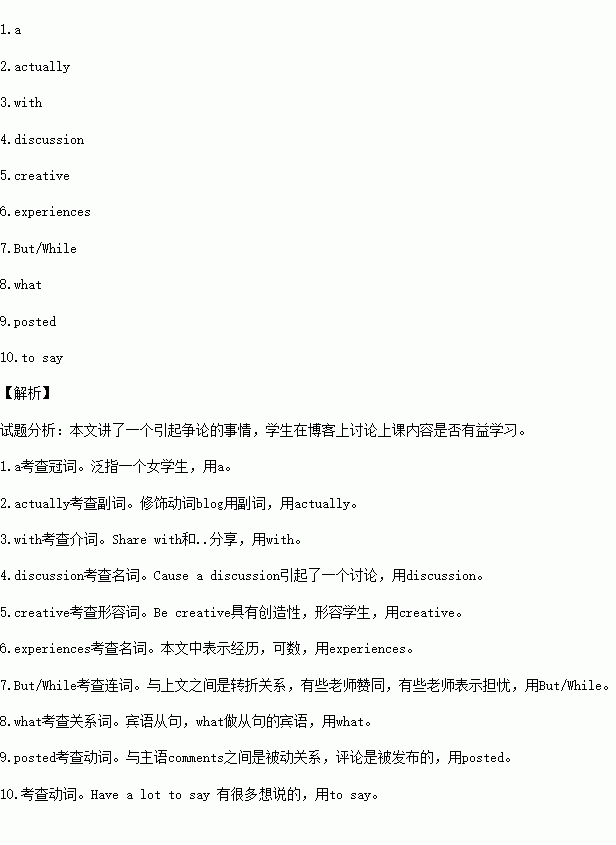题目内容
阅读下面材料,在空白处填入适当的内容(不多于3个单词)或括号内单词的正确形式。
During a recent Senior Three English lesson, the teacher caught Xiao Di, 1. female student, busily typing messages on her cell-phone. To the teacher’s surprise, Xiao Di wasn’t just texting her friends the latest small talk. She was 2. (actual) blogging about what was being taught in the classroom, sharing her opinions about the information and material 3. her classmates.
The case caused a heated 4. (discuss) among teachers and students city-wide. Miss Li, an English teacher from another nearby school said, “I am amazed at how 5. (create)the students can be when writing on their blogs. To me it’s a great way for students to improve their writing skills while writing about personal feelings and 6. (experience).” 7. other teachers are worried that blog-addiction may disturb their students’ study.
A supporter and classmate of Xiao Di said, “We love her blog! We all read it each day and can’t wait to see 8. she writes about next. Her interesting stories and great suggestions on study really help to encourage us. And it adds a little fun to our stressful life.” Another student blogger admitted that he often works late into the night, writing his blog and responding to comments 9. (post) there. He said, “Sometimes I don’t even have time to finish my homework. I can’t help myself. I really have a lot 10. (say). ”


 ),并在其下面写出该加的词。
),并在其下面写出该加的词。